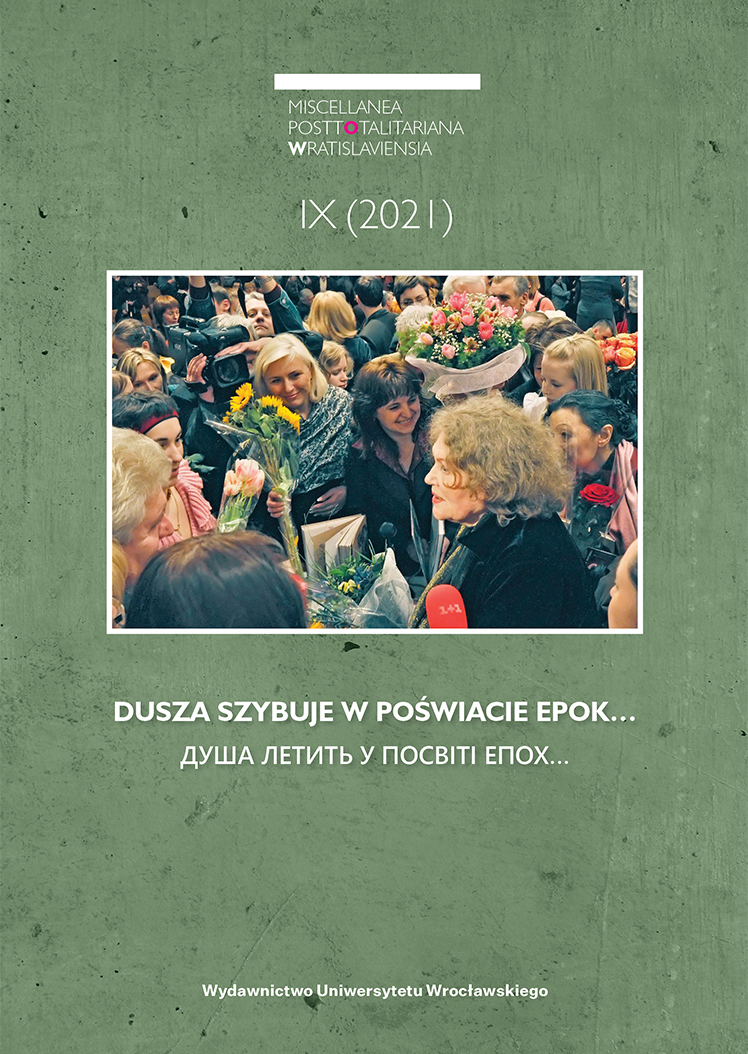

Artykuły

Italian motifs in the works of Lina Kostenko are examined. Her imagination, overcoming time and space, often “revives” the figures of great masters to see in their stories an eternal meaning of life. Through the optics of these figures, timeless themes and problems are revealed: the conflict of genius and crowd (Dante), ethical maxims of a self-demanding artist, always dissatisfied with his creative work (Michelangelo Buonarroti), the problem of broken / steadfast artist (dramatic poem Snow in Florence: Rustichi). The author examines the universal collisions developed by the poet at a high artistic level, which leads to seeing parallels and analogies in eternal plots, as Florence and Tour are “pseudonyms” of Ukraine of the totalitarian times, when poet/subject had to choose between conformism / nonconformism. It is emphasized that the analyzed works of Lina Kostenko on Italian themes confirm the idea that compromise, ethical instability, duality of soul, work to please the crowd are detrimental to the artist, who is called to sacrifice to establish high art in the world. Dramatic tension in the development of the plot, psychology of characters, dynamic dialogues, vivid figurative words — all this makes the works of the writer especially deep and artistically perfect.